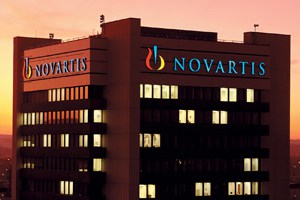 Novartis has decided to shut down its cell and gene therapy unit, although the company insists it is not abandoning key projects including its CAR-T cancer immunotherapy programme.
Novartis has decided to shut down its cell and gene therapy unit, although the company insists it is not abandoning key projects including its CAR-T cancer immunotherapy programme.
Much of the work being carried out by the group – which employs around 400 people – will be “re-integrated” elsewhere in the Novartis group. However, it is expected that around 120 jobs will be lost during the reshuffle.
Novartis insists that its lead CAR-T project CTL019 for acute lymphoblastic leukaemia (ALL) remains on course, with filings still expected to take place in the US and Europe in 2017.
According to the drugmaker the decision is more about fitting in with a new R&D structure at the group, which was announced in May and included a decision to place all cancer assets into a separate unit.
“An isolated unit worked well under our prior pharma division structure, but with a new integrated development model, we can efficiently advance our work on CAR-T as part of our focus in immuno-oncology by reintegrating the functions,” it said in a statement.
Nevertheless, the decision to disband the group raises questions about the potential for a technology beyond CTL019. After all, an engine running on all cylinders does not generally require too much tinkering, and much was made of the cell and gene therapy unit’s independence and biotech-like agility when it was set up.
CTL019 was conspicuous in its absence on a list of future blockbusters in the firm’s recent interim results presentation, although Novartis insisted there was no change in its confidence in the programme, adding it would also be filed on schedule in 2017 for the follow-up indication of diffuse large B-cell lymphoma (DLBCL).
It also said it was committed to the “ongoing development” of CAR-T therapies, although there has been little news on follow-up programmes from the group in recent months. Meanwhile, the FDA’s recent (but short-lived) clinical hold on a CAR-T project at Juno Therapeutics emphasised the risks of developing a completely new treatment approach.
The decision could mean that technical challenges – notably manufacturing complexity, dosing issues, the toxicity of pre-conditioning treatment to prime the patient for the immunotherapy etc – have injected some realism into the commercial potential of the approach.
Of course, it could also stem from pessimism about others within the cell and gene therapies group’s remit – such as perennial under-achiever gene therapy.
Regardless, investors have been spooked by the announcement, with Juno and other CAR-T developers such as Kite Pharma seeing their share prices drop in the wake of the announcement.




